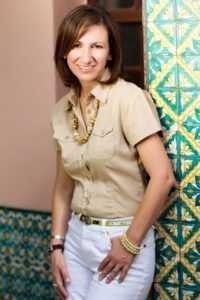 Researching for Authenticity in Historical Fiction by D.J. Niko
Researching for Authenticity in Historical Fiction by D.J. Niko
Researching historical fiction and thrillers with historical themes is a little like going down the rabbit hole: you have to enter another world and come out, sweating and panting, on the other side before you can actually get it.
When you research and write about the ancient world, that’s especially true. I deal with time periods as far back as the sixteenth century BCE, when information wasn’t exactly plentiful and the recording of facts was sketchy at best. Think about it: historical documentation as we know it wasn’t a thing back then. The ancient Egyptians carved their conquests onto temple walls, the Israelites had an oral history that got passed down over thousands of years, the Greeks (before the days of Herodotus) painted pottery and inscribed ostraca, and on it goes. A few blanks to fill in? You can say that again!
A lot of people ask me, why the ancient world? Why not pick something more accessible, like, say, World War II or 1960s London? What can I say? Doing things the hard way is one of my more charming qualities.
So how do I get my material? For starters, I hang out with a lot of archaeologists. Archaeology is one of the most important tools in understanding antiquity, because it provides hard proof of how people lived and died, when cities flourished and were destroyed, worship practices, and so on. The scientists working in the field are a wealth of information and, in most cases, fairly outspoken (and opinionated!) about their research. They are more than happy to give a novelist an earful.
In researching my first book, The Tenth Saint, I traveled to Ethiopia and spent time with historians at Aksum and monks at Lalibela, trying to understand the mindset of the people during the early centuries of the Common Era, when Christianity first infiltrated the Abyssinian Empire. I went down into the tombs of Aksum, walked through the catacombs beneath the rock churches of Lalibela, attended traditional ceremonies whose practices had not changed since ancient times, hiked to cave churches in the hinterlands (and I mean hinterlands), and studied the stele inscriptions of the nation’s early kings. Of course, I also sampled all the Ethiopian food, beer, coffee, and tej (honey wine) I could get my hands on. Hey, it’s the least I could do for my readers.
For the next book in the series, The Riddle of Solomon, I added another layer of inquiry to the standard archaeological research. The story is set largely in Israel and involves an antagonist who believes he is the Jewish messiah for whom the world has waited. This guy is ruthless in amassing the relics that will prove his legitimacy; chief among them are the plans for building the third temple in Jerusalem, meaning the original temple plans by King Solomon.
So, to research messianism, Judaic oral tradition, and the spiritual significance of King Solomon’s story, I consulted a couple of rabbis. They were very gracious to embrace a Greek Orthodox girl and, over several meetings, walk her through the fine points of Judaism. It was illuminating, to say the least, and I think the book is better for it.
For me, there is no substitute for experiencing a place firsthand and interviewing the experts in person. But life does not always allow for this. My other means of research include university library archives, books written by ancient writers (for my novel The Oracle, which takes place in contemporary and ancient Greece, I read Plutarch, Herodotus, and Pausanias), museums, and, of course, the Internet. And this happens throughout the writing process, not just in the front end.
As I state in my Twitter profile, I have become an antiquities geek thanks to all this research (I’m really fun at cocktail parties), but if the work seems more authentic because of it, I’ll take the ridicule.
Video trailer for THE TENTH SAINT
~ ~ ~ ~ ~ ~
Daphne Nikolopoulos in an award-winning journalist, novelist, lecturer, and writing instructor. Under the pen name D.J. Niko, she has written three novels in an archaeological thriller series titled The Sarah Weston Chronicles and a historical novel titled The Judgment (Medallion Press, 2016). Her debut novel, The Tenth Saint (Medallion Press, 2012), won the Gold Medal (popular fiction) in the Florida Book Awards. The Judgment won a national Bronze Medal in historical fiction in the IPPY Awards 2017 and first place in historical fiction (pre-published) in the Royal Palm Literary Awards.
All four books have been translated and published internationally. The fourth and final book in the Sarah Weston series, Firebird, will be released in 2018.
Daphne is current editor in chief of Palm Beach Illustrated magazine and editorial director of Palm Beach Media Group. Prior to that, she was a travel journalist who logged hundreds of thousands of miles traveling across the globe, with emphasis on little-known and off-the-beaten-path locales—many of which have inspired her novels.
Daphne is a writing instructor at Florida Atlantic University’s Osher Lifelong Learning Institute, where she also lectures about ancient cultures. She also teaches principles of writing fiction at the Florida Authors Academy and the Mandel Library of West Palm Beach, and has lectured on her research and travels nationwide.
Born and raised in Athens, Greece, Daphne now resides in West Palm Beach with her husband and twin son and daughter. You can find her on the Web at djnikobooks.com and connect with her on Facebook (AuthorDJNiko) and on Twitter: @djnikobooks.
Thanks for stopping by… researching for authenticity is a difficult thing for any writer.
Thank you for having me! This is one of my favorite topics for discussion, and I welcome any comments from your readers.
Fascinating research. And now more books for my TBR list. Not that that’s a bad thing. Thanks, Daphne and Debra.